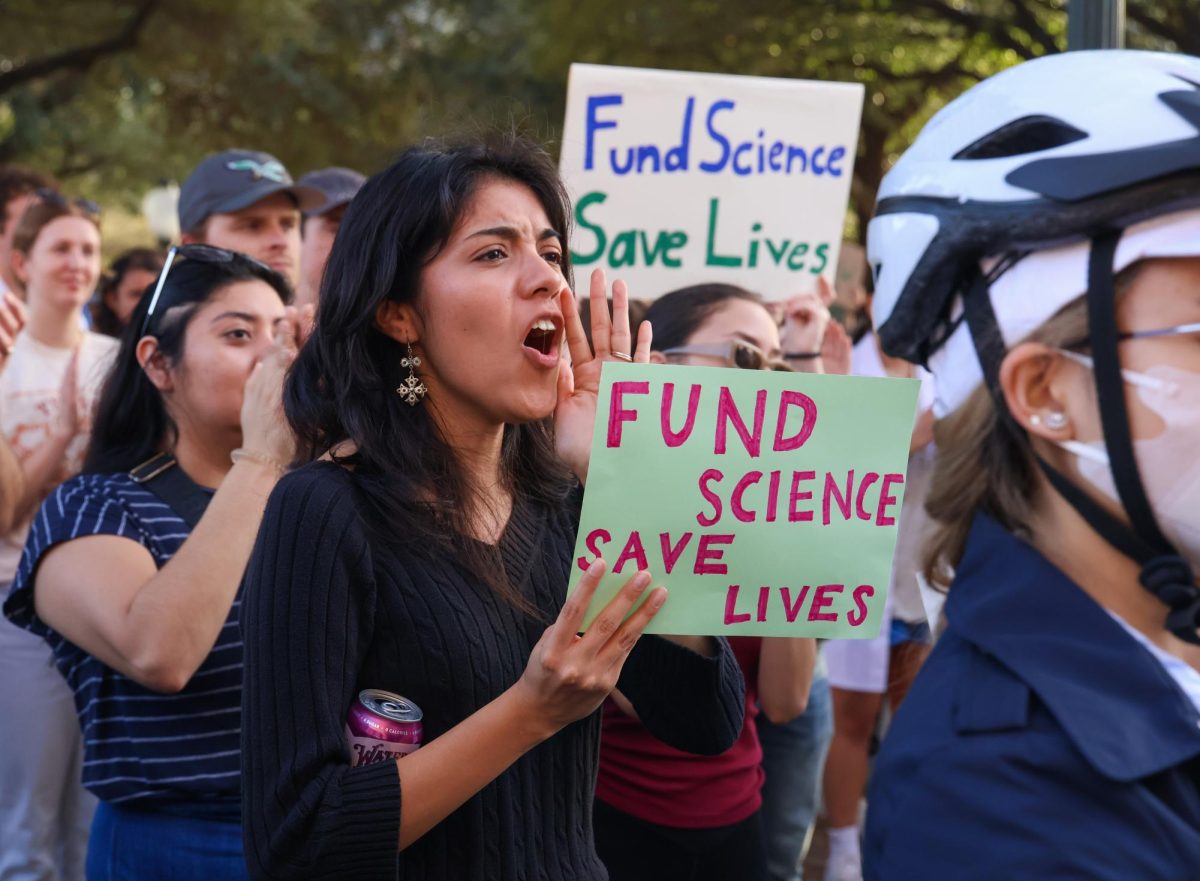The Capitol lawn hosted some unusual outfits ranging from corsets and thongs to sundresses and sweat pants Saturday as 400 people gathered to condemn a culture that blames rape victims in SlutWalk Austin.
Two people are raped or sexually assaulted in Austin every day, and only 40 percent of those attacks are reported to authorities, according to the group’s website. The event and others like it around the world aim to promote healthy conversation about rape and rally to end sexual assault.
The first SlutWalk took place in Toronto in April after community members were outraged when a police officer told university students that women would be less likely to get raped if they didn’t dress like “sluts.” Austin SlutWalk organizer Abigail Dalgleish said she decided to introduce SlutWalk to Austin after she learned about the recent gang rape of an 11-year-old girl in Cleveland, Texas.
“The coverage of the rape was very problematic,” Dalgleish said. “The media kept covering how troubling the rape was for the community instead of the fact that an 11-year-old girl had just been gang raped by 18 men.”
Dalgleish said her fellow organizers hope the walk will help spread the message that sexual assault is never the victim’s fault.
Elizabeth Byrd, a child protective specialist with the Texas Department of Family Protective Services spoke at the event on behalf of child victims of sexual assault. She said more than 6,000 children are sexually abused every year — the size of some small towns.
“Entire cities of children in our state are being raped,” Byrd said. “I’ve worked with survivors as young as six months old and as old as 80 years old. I can assure you the six-month-old survivor was not raped because of what she was wearing.”
Byrd said she came to the event to encourage participants to protect, inform and listen to children who say they are being hurt. She said she puts pressure on all parents to raise their children to not perpetrate violence of any sort.
Brooke Axtell, who works with anti-sexual assault organizations such as Rape, Abuse, Incest National Network and the Women’s and Children’s Alliance, spoke at the event about her own experience with sexual assault. She said she hopes to inspire other victims of sexual assault to give voice to their pain so they can begin their healing process.
“Keep talking until somebody listens,” Axtell said. “Rape is soul murder and the resurrection is extremely painful. Only you can tell the story you need to tell to honor the truth.”
Guli Fager, health education coordinator at UT’s Health Promotion Resource Center, said in her experience, UT police officers take sexual assault very seriously and would never blame victims. She said she attended the event because it is starting healthy conversations about rape.
“It’s important for people, both male and female, to understand that people are sexually assaulted because someone wanted to assault them, not because they were dressed slutty,” Fager said. “We would never say to someone who parked their car in a dark ally that they deserved it if it was stolen. We would never say ‘you did a slutty parking job.’”
Fager said she understands the term SlutWalk is controversial, but she is glad the name stands out enough to get people to notice the movement against sexual assault.




















